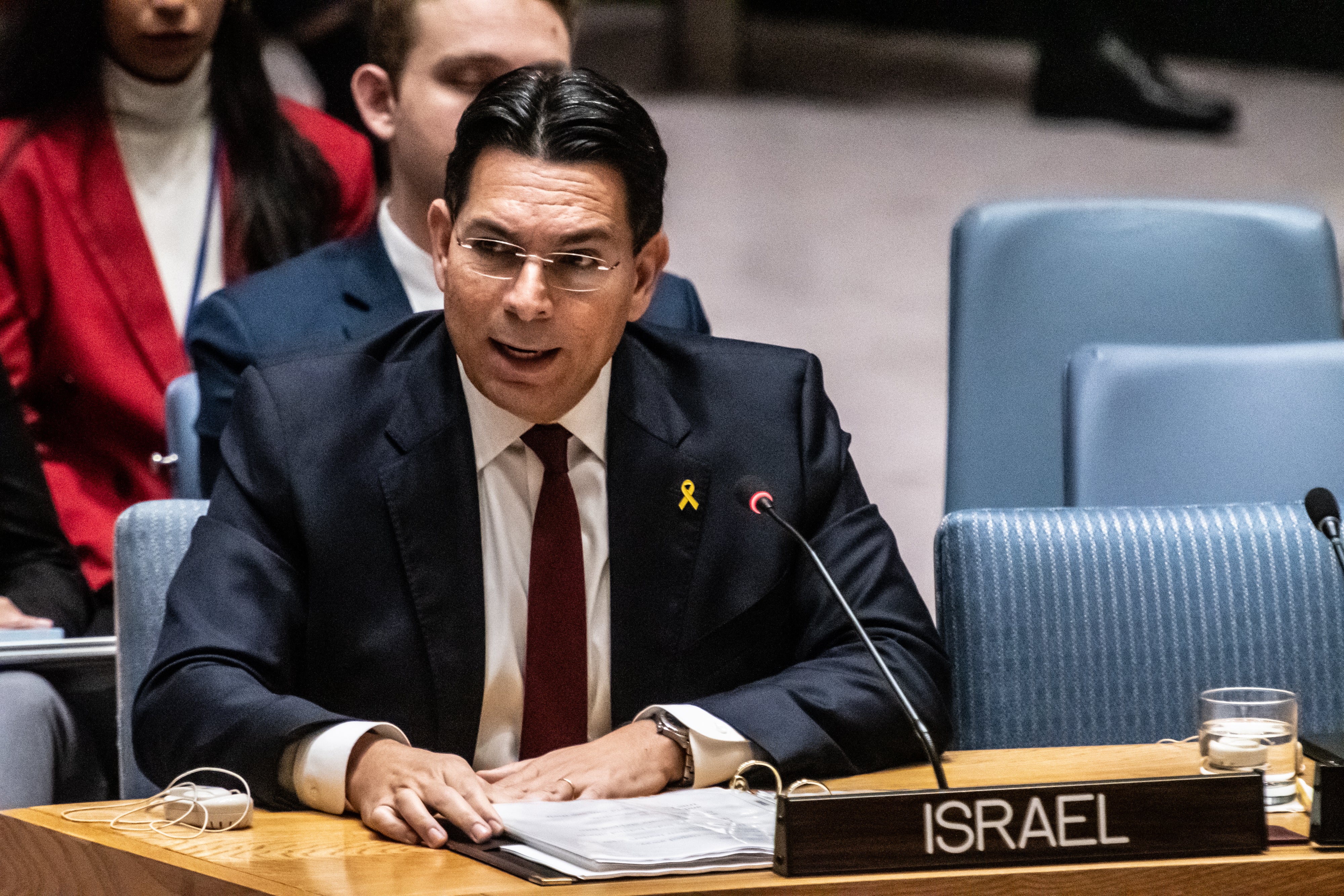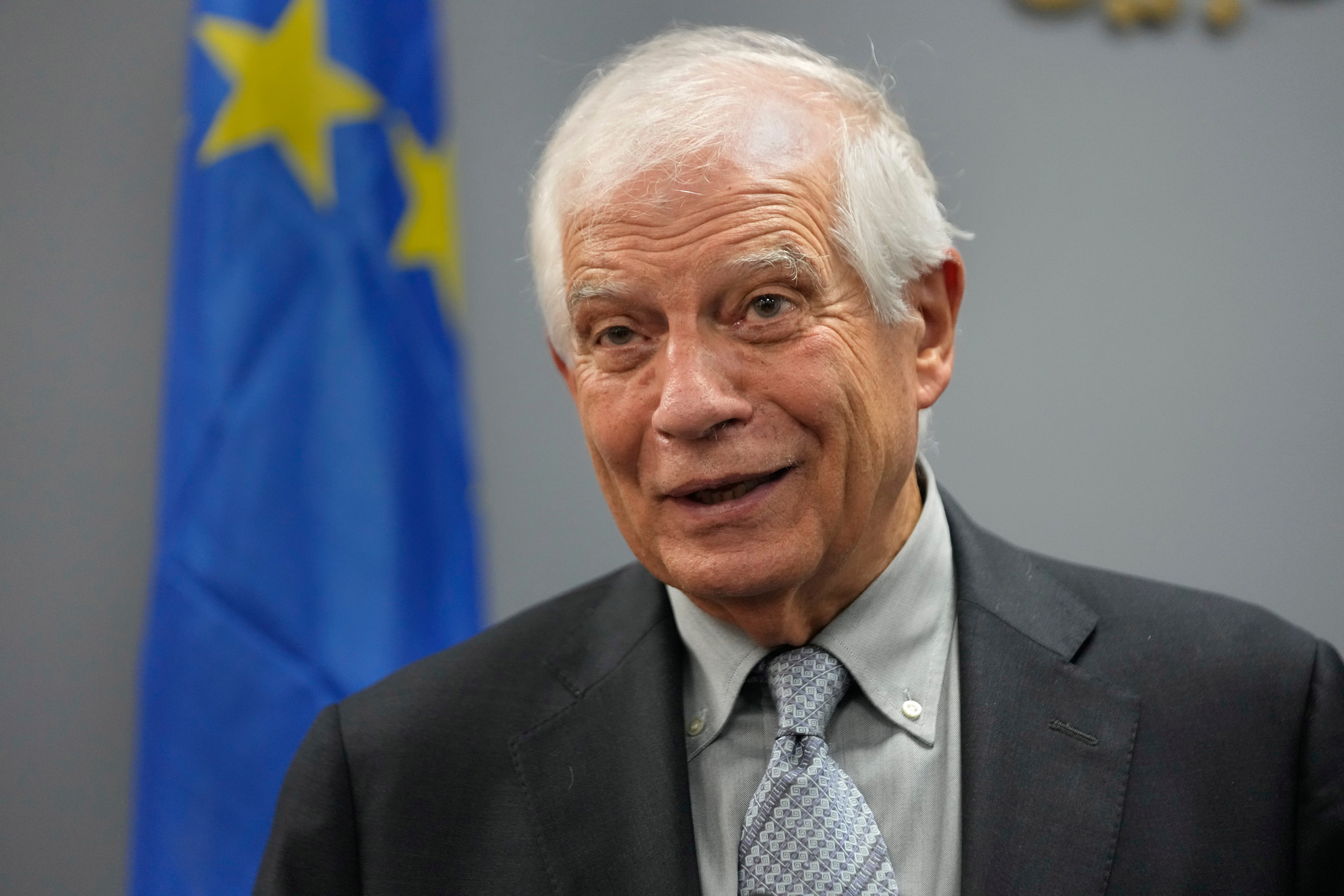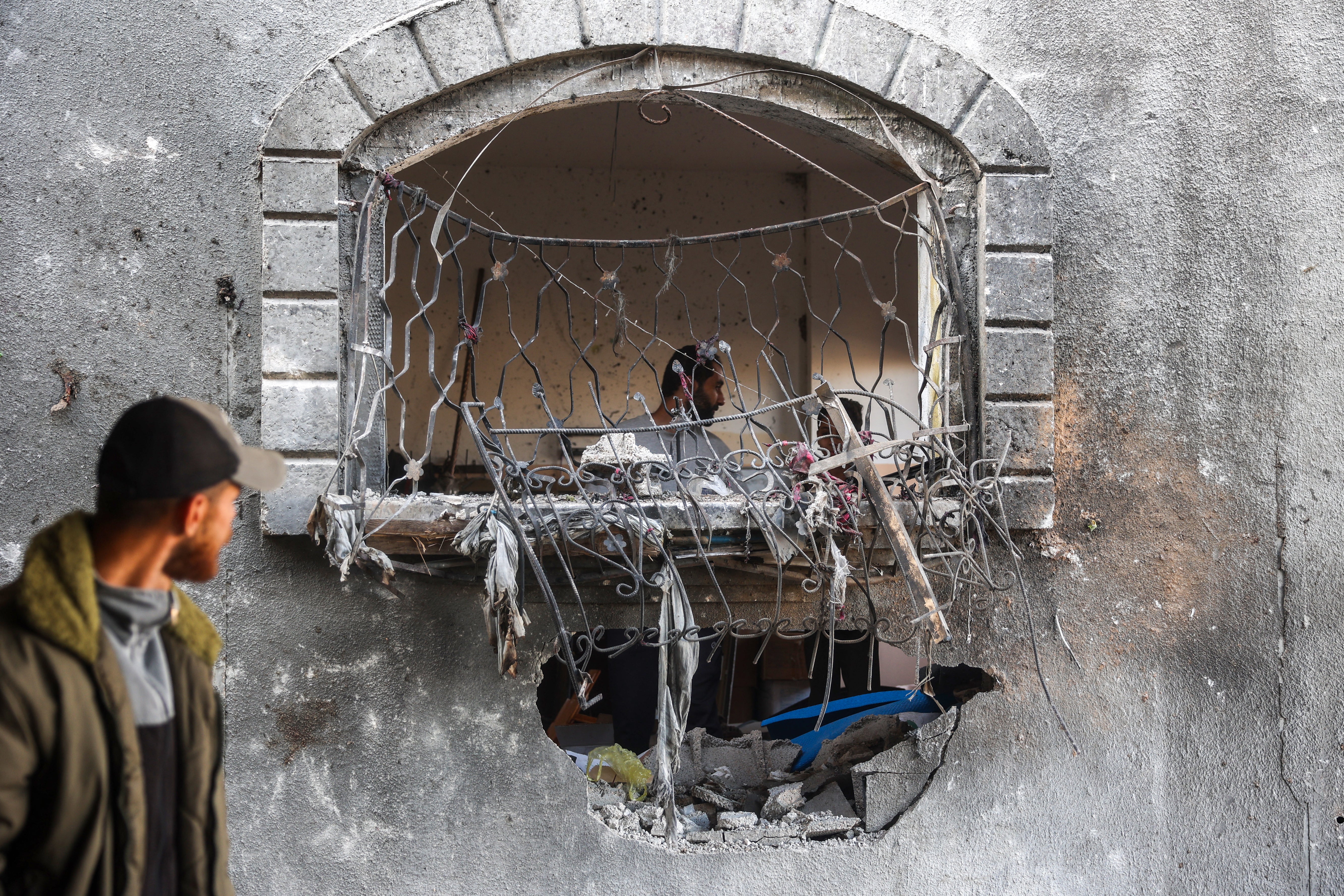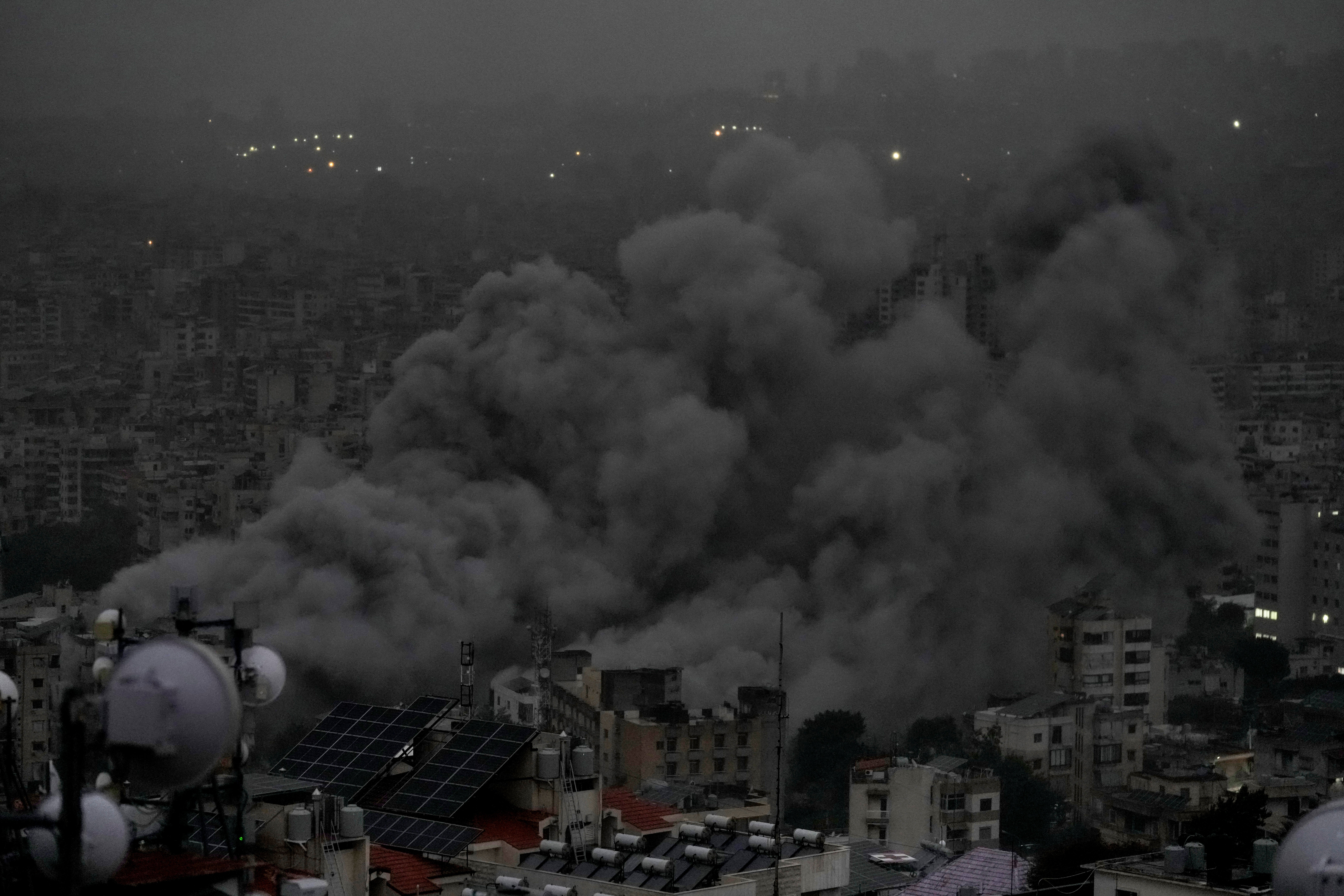Israel-Lebanon latest: Biden to push for Gaza ceasefire after Hezbollah truce agreed by Israel
Israel’s security cabinet voted in favour of a ceasefire with Hezbollah by 10-1 on Tuesday evening
Your support helps us to tell the story
From reproductive rights to climate change to Big Tech, The Independent is on the ground when the story is developing. Whether it's investigating the financials of Elon Musk's pro-Trump PAC or producing our latest documentary, 'The A Word', which shines a light on the American women fighting for reproductive rights, we know how important it is to parse out the facts from the messaging.
At such a critical moment in US history, we need reporters on the ground. Your donation allows us to keep sending journalists to speak to both sides of the story.
The Independent is trusted by Americans across the entire political spectrum. And unlike many other quality news outlets, we choose not to lock Americans out of our reporting and analysis with paywalls. We believe quality journalism should be available to everyone, paid for by those who can afford it.
Your support makes all the difference.US president Joe Biden is set to push for an elusive Gaza ceasefire after Israel approved a US plan for a truce with Hezbollah.
Mr Biden said he would “make another push with Turkey, Egypt, Qatar and Israel to achieve a ceasefire in Gaza,” following a breakthrough in a devastating conflict that his ripped through the Middle East.
On Tuesday evening, the Israeli security cabinet voted in favour of a US-mediated ceasefire with Hezbollah by 10-1, according Israeli prime minister Benjamin Netanyahu’s office.
The ceasefire comes after more than a year of near-daily rocket fire, ferocious airstrikes and on-the-ground skirmishes between Israeli forces and the militant group across Lebanon.
It was not immediately clear when the ceasefire would come into effect, and the exact terms of the deal were not released.
But previous reports have suggested the plan would include a 60-day ceasefire and see the withdrawal of Israeli troops from Lebanon and the removal of Hezbollah fighters from south of the Litani River.
Thousands of troops from the Lebanese Army will be deployed, and an international committee will monitor the implementation of the ceasefire.
Israel strikes Beirut suburbs ahead of ceasefire deal
Israel airstrikes in southern Beirut have demolished sections of Hezbollah-controlled suburbs, as the militant group also kept up rocket fire into Israel.
The IDF issued an evacuation warning on social media platform X earlier this morning, telling all residents in some southern suburbs, “you are located near Hezbollah facilities and interests, against which the IDF will operate in the near future.”
“For your safety and the safety of your family members, you must evacuate these buildings and those adjacent to them immediately and stay away from them for a distance of no less than 500 meters,” the post said.
The IDF released a map, telling residents it was targeting Burj Al-Barajneh and the pond enclosure.
Israel’s UN ambassador says nation could still strike Lebanon under deal
On Monday, Israel’s ambassador to the United Nations, Danny Danon, asserted Israel would maintain an ability to strike southern Lebanon under any agreement.
Lebanon has previously objected to Israel being granted such a right, and Lebanese officials have said such language is not included in the draft proposal.
However, two Israeli officials told Reuters news agency Israel had a side agreement with the US allowing it to take action in Lebanon against “imminent threats.”

Meanwhile, the Israeli Defence Force has this morning continued its warnings of the threats it says Hezbollah poses, posting on social media platform X the militant political group “endangers UN peacekeepers, Israeli and Lebanese civilians alike.”
The IDF has reported Hezbollah fired rockets toward the northern Golan Heights, near the Israel-Syria-Lebanon border, damaging a UN outpost.
“A message was sent to the UN prior to the event, advising that all UN personnel enter/stay near protected areas,” the post this morning said, adding the IDF conducted an inspect after the strike.
“It was concluded that the damage was in fact caused by the fallout from Hezbollah’s rockets which were launched toward northern Israel.”
Israel will have ‘zero tolerance’ towards breaches of deal
Israel’s defence minister, Israel Katz, says the nation will show “zero tolerance” towards any infraction of an impending ceasefire deal with Hezbollah, as Israel demands the UN enforce the terms of the agreement.
“Any house in southern Lebanon that is rebuilt and established as a terrorist base will be destroyed, every armament and terrorist regrouping will be struck, every attempt to smuggle weapons will be thwarted and any threat to our forces or to Israeli citizens will be destroyed immediately,” Katz has reportedly told the U.N.’s special co-ordinator for Lebanon Jeanine Hennis-Plasschaert, according to Reuters.
Israeli prime minister Benjamin Netanyahu will chair a security council meeting later today, where the deal will be considered, but Katz’ rhetoric in the lead-up to the discussion signals it is likely to be approved.
Israel says any deal with Lebanon will maintain its ability to act to remove the threat of Hezbollah, while Lebanon has said it will send 5,000 troops into the border region to maintain piece.
Israeli minister and far-right leader Ben Gvir urges against ceasefire deal
Israel’s national security minister Itamar Ben Gvir has warned a ceasefire deal with Hezbollah is a “big mistake” and that the agreement would be a “missed opportunity to eradicate Hezbollah”.
The leader of the far-right Otzma Yehudit took to X yesterday to announce his grievances over the impending deal as the international community ramps up pressure for Israel to agree to the terms, which would see Israeli troops withdraw from southern Lebanon, and Lebanese troops to move into the border region, a Hezbollah stronghold.
“An agreement with Lebanon is a big mistake. A historic missed opportunity to eradicate Hezbollah,” he said.
“I understand all the constraints and reasons, and it is still a grave mistake. You have to listen to the commanders fighting in the field, listen to the heads of the authorities.”
He said it was “forbidden to stop” when Hezbollah was beaten and longing for a ceasefire. “As I warned before in Gaza, I warn now as well: Mr. Prime Minister - it is not too late to stop this agreement! We must continue until the absolute victory!”
‘No excuse,’ warns EU foreign policy chief
The European Union’s foreign policy chief Josep Borrell is urging Israel to back the ceasefire deal, which he says has all the necessary security guarantees for Israel.
Speaking at a G7 Foreign Ministers meeting in Italy, Mr Borrell said there was no excuse for not implementing the deal with Hezbollah, adding pressure should be exerted on Israel to approve it immediately.

“No more excuses. No more additional requests,” Mr Borrell said.
He said he discussed prospects for a deal in a recent trip to Lebanon and one of the sticking points was whether France should be included in a committee monitoring the implementation of the ceasefire, which the US is due to chair.
He said the Lebanese have specifically asked for France’s involvement, but the Israelis have misgivings. “This is one of the points that are still missing,” he said.
Chronology of events in the conflict
If successful, the ceasefire deal would represent a significant milestone in the Middle Eastern conflict that has rocked global politics since Hamas launched its terror attack against Israeli communities on October 7 last year.
Last month the Independent compiled a timeline marking major events in the conflict after Israel launched its ground offensive in Lebanon, which at the time ballooned fears of an all-out war with Hezbollah.
In light of today’s impending development, you can read that chronology here.

Hostilities intensifying in lead-up to deal
In Beirut, Israeli airstrikes levelled more of the Hezbollah-controlled southern suburbs on Monday, sending clouds of debris billowing over the Lebanese capital.
Lebanon’s health ministry said Israeli attacks killed 31 people and wounded 62 across the country on Monday.

Over the past year, more than 3,750 people have been killed and over one million have been forced from their homes, according to the ministry, which does not distinguish between civilians and combatants in its figures.
Israel has dealt major blows to Hezbollah, killing its leader Hassan Nasrallah and other top commanders, and inflicting massive destruction in Lebanon in areas where the group holds sway.
Israel says its military offensive is aimed at enabling tens of thousands of Israelis to return to homes they evacuated when Hezbollah began firing across the Lebanese border into Israel more than a year ago.
What is the deal being discussed?
The plan before Mr Netanyahu requires Israeli troops to withdraw from south Lebanon, and Lebanese army troops to deploy in the border region - a Hezbollah stronghold - within 60 days.
The impending agreement has been accompanied by Israeli airstrikes demolishing more of Beirut’s Hezbollah-controlled southern suburbs on Monday.
Israel also carried out powerful airstrikes over the weekend, one of which killed at least 29 people in central Beirut, while Hezbollah unleashed one of its biggest rocket salvos yet on Sunday, firing 250 missiles into Israel.
In Israel, a ceasefire will pave the way for 60,000 people to return to homes in the north, which they evacuated as Hezbollah began firing rockets in support of its Palestinian ally Hamas a day after that group’s attack on 7 October, 2023.
A sticking point over who would monitor compliance with the ceasefire was resolved on Monday with an agreement to set up a five-country committee, including France and chaired by the United States.
Israel security cabinet to meet later today
Israel is poised to approve a US plan for a ceasefire with Hezbollah, a senior Israeli official has told Reuters news agency.
If agreed to, the deal would mark a significant breakthrough in bringing peace to the region following the breakout of the Gaza conflict in October 2023.
Israel’s security cabinet is expected to convene later on Tuesday to discuss and likely approve the text at a meeting chaired by Prime Minister Benjamin Netanyahu, the official said.
This would pave the way for a ceasefire declaration by US president Joe Biden and French President Emmanuel Macron, Reuters reports.
Lebanon backs the agreement, while Hezbollah, seen as a terrorist group by the US and UK, has endorsed negotiations.
Israeli strikes hit north Lebanon crossings with Syria for first time, minister says
Israeli strikes late on Tuesday targeted Lebanon’s three northern border crossings with Syria for the first time, Lebanon’s transport minister Ali Hamieh told Reuters.
The strikes came moments after U.S. President Joe Biden announced that a ceasefire would come into effect at 4am local time (2am) on Wednesday to halt hostilities between Lebanese armed group Hezbollah and Israel.
Hamieh said it was not immediately clear whether the roads had been cut off as a result of the strikes. Israeli raids on Lebanon’s eastern crossings in recent weeks had already sealed off those routes into Syria.

Join our commenting forum
Join thought-provoking conversations, follow other Independent readers and see their replies
Comments